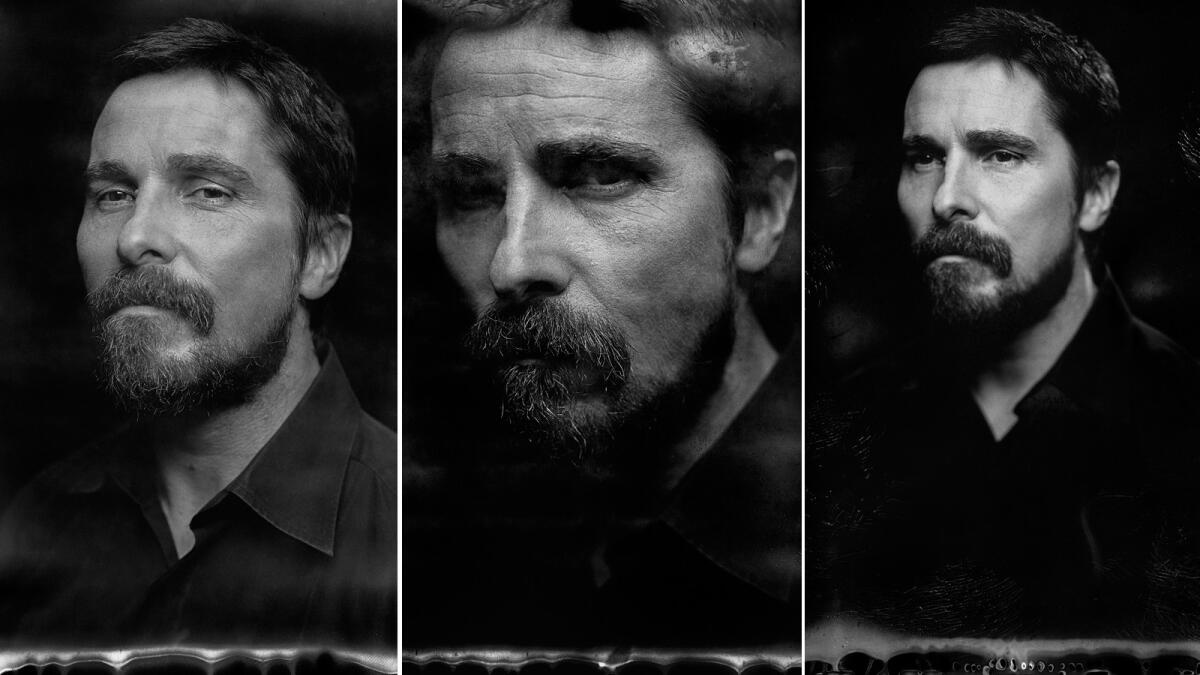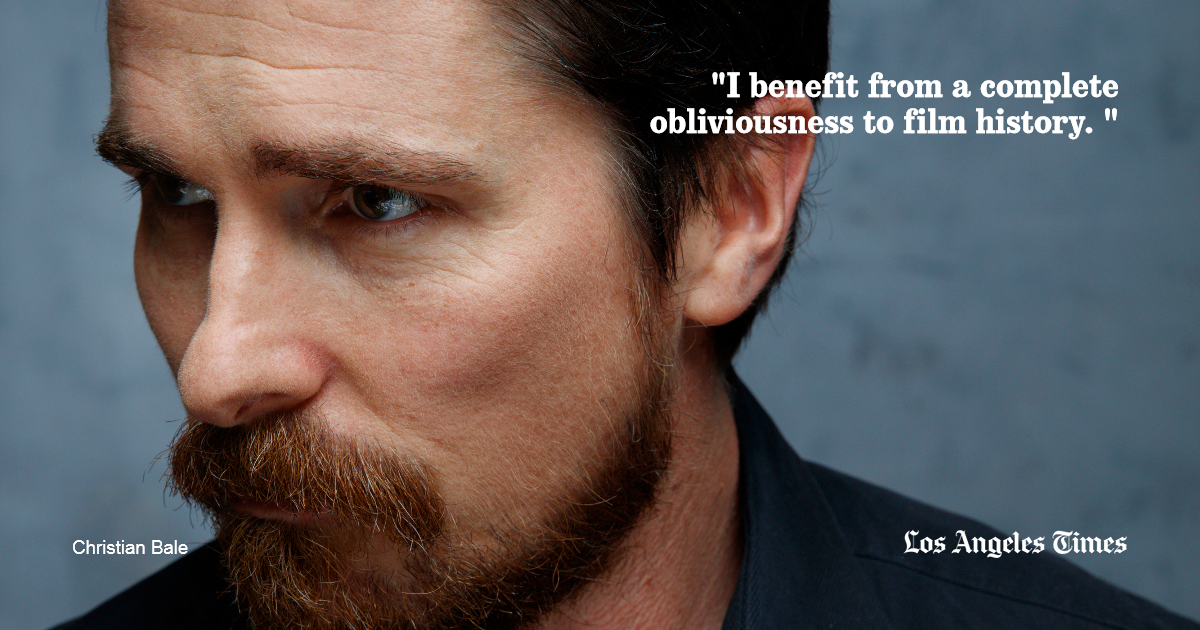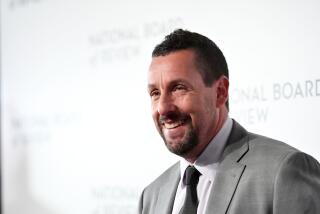Christian Bale follows Terrence Malick’s train of thought in ‘Knight of Cups’

Actor Christian Bale
Christian Bale has a long history with Terrence Malick. The Oscar winner first met the director when he read for a part in the filmmaker’s 1998 World War II drama “The Thin Red Line” –— he wasn’t cast.
But he was cast in Malick’s 2005 historical film “The New World.” Now he’s in the latest Malick film, “Knight of Cups,” a contemporary story in which Bale plays a Hollywood screenwriter named Rick who has all the trappings of success — work, money, houses, cars, access. Yet it has left him at a crossroad, full of unfulfilled needs and a desire to find a new way forward.
Malick shot “Knight of Cups” without a conventional script. Rather, the film emulates glimpses of memory more than straightforward storytelling, pulling the viewer along through Rick’s spiritual and emotional crisis. It’s of a piece with Malick’s more recent films — “The Tree of Life” and “To the Wonder” — in its movement away from traditional narrative in favor of a more impressionistic style. Not surprisingly it requires actors to flex new muscles.
SIGN UP for the free Indie Focus movies newsletter >>
A few days after the recent Academy Awards ceremony — Bale was nominated for supporting actor for his role in “The Big Short” — the actor sat in Beverly Hills and talked about the unique Malick moviemaking experience.
You’ve said elsewhere that you’ve been talking with Malick about doing another project ever since you made “The New World” together and that this sprang from a series of conversations you two had about the character. What were those conversations like, who was the character you were talking about?
I think it would be giving me too much involvement to suggest it came out of our conversations, I think this is something Terry has had running around in his brain for much longer than we’ve known each other. Terry doesn’t always let on quite how much he has in his head. The whole notion is, let’s see what happens, let’s discover it, and he always wants to have everyone’s full participation. He’s certainly not a tyrannical, dictator director in the slightest. The motto was always let’s start before we’re ready, which would unnerve a lot of people. But I thought it was wonderful.
My character is definitely a man of words who has lost all use of words, he’s very much an observer and a listener. He’s gone through every excess, every beauty that can be discovered in Los Angeles and finds himself wanting. After much success he’s still peering over the mountaintop going, “I’m still the same person, I thought I’d feel different.” So there’s a sense of trying to discover who he already is but that he’s lost.
There’s a real mystique about Malick, in no small part because he doesn’t give interviews, so for some people he’s as much myth as man. Was that something you had to get past in working with him?

Christian Bale
I benefit from a complete obliviousness to film history. I had no relationship to any of that. I’d never want to speak for Terry, but I don’t think he would want that distance, of being a myth. I think he really likes being around people. He loves the hustle and bustle of life. He would never encourage that sort of thing. He just wants his privacy. And all the best to him. I’d love to be able to do what Terry’s doing, “I’m not talking,” but I’d like for people to experience this film, and if it helps if I can talk about it a little bit, even if I’d really rather not, then I’m going to do it.
And I’m on the screen, so it’s not like no one knows what I look like, where Terry can get away with a bit more of having a life he can lead. That’s the thing we’re always doing, you’re kind of ruining your ability to make films the more you make, it becomes trickier because you become stuck in the circus freak show a little bit. You start to get that distance where you’re not normal, and you’ve got to be normal to make good films. So by the act of doing it, you’re distancing yourself from the things you need to do it well.
You’ve said before that you don’t draw from yourself or your own experience for your characters, but with a film like this, what else are you drawing from?
I had enough of a concept of family, with Brian [Dennehy who plays his father] and Wes [Bentley, who plays his brother], enough of a concept of where they came from, and for me I like to just sort of obsess on that. That’s what I’m thinking about in each and every scene, instead of going, how does this relate to my life in an effort to find an emotion that otherwise might be lacking.
To me, that’s kind of a false effort. For me I never find that works, or if there was something where you’ve got a scene and you’re thinking about something awful that happened in your own life, I always felt like a cheap bastard afterwards. I just used that genuinely tragic moment for this. I know a lot of actors do it, good for them, no issues with it. I just can’t bring myself to do that.
At the Oscars recently you were right on the aisle of the very front row. Did you know that’s where you would be sitting when you got there?
No. I ended up in the front with “American Hustle.” And there was a camera right there in front the whole time, and I looked at my wife and thought, “All night? What if I want to pick my nose?” [This year] I thought, “it’s just supporting actor, I’ll probably be way back, perfect.” And we arrived and, “oh, no, we’re right at the front again.” It’s a strange affair.
From those seats it must seem like the show is really for you. But also you can’t ever stop paying attention.
Well, you can’t help it. It’s a long show.
Follow on Twitter: @IndieFocus
More to Read
Only good movies
Get the Indie Focus newsletter, Mark Olsen's weekly guide to the world of cinema.
You may occasionally receive promotional content from the Los Angeles Times.







